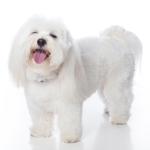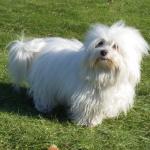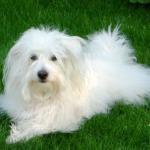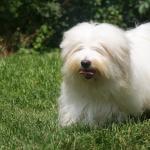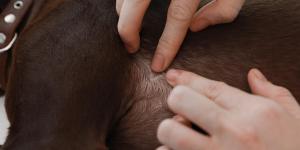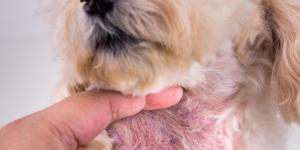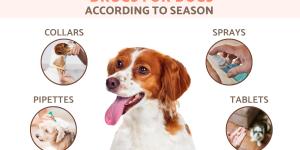Coton de Tuléar
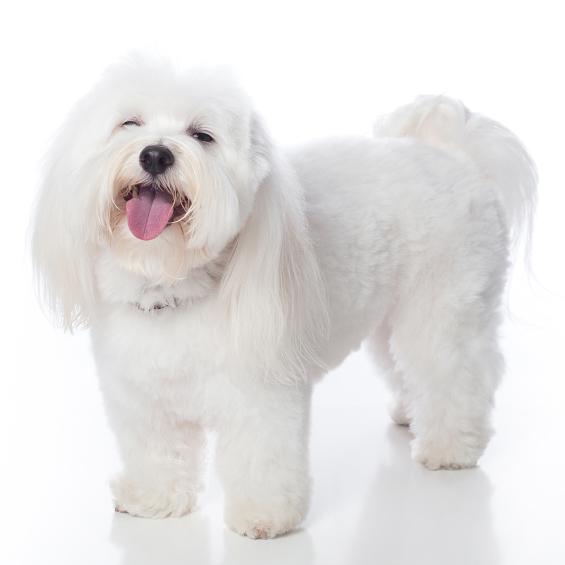
Coton de Tuléar is a beautiful Malagasy companion dog. Its main characteristic is its white, soft and cotton textured coat, hence its name. This breed can adapt to any situation. It is affectionate, sociable and ideal for families, as well as single or elderly people, provided they have the time that this breed requires.
If you are looking to adopt a Coton de Tulear you have come to the right place. In this AnimalWised breed file we will cover everything you need to know about this cotton coat breed! We will be discussing its origin, physical characteristics, temperament, behavior, care and health.
- Africa
- Madagascar
- Group IX
- 5-14
- 14-18
- 18-22
- 22-27
- 27-31
- More than 31
- 2-7
- 7-22
- 22-55
- 55-100
- 100-220
- 8-10
- 10-12
- 12-14
- 15-20
- Low
- Meidum
- High
Origin
The origin of this breed is somewhat unclear as there is no reliable record of it. However, many believe that Coton de Tuléar descends from European dogs of the Bichon family. They believe that these Bichons were brought to Madagascar by French troops or perhaps by English and Portuguese sailors.
Be that as it may, the coton de Tuléar is a now considered a Malagasy dog from the port city of Tuléar, known today as Toliara. This dog was traditionally very appreciated by wealthy families from Madagascar. It was only in 1970 that the breed gained official recognition from the International Cynological Federation (FCI) and it was in this decade that the first Coton de Tulears were exported to America. Currently, there is little known about this cute canine breed but its popularity is gradually growing.
Physical characteristics
This dog has a body longer than its height and its upper line is slightly convex. Its cross is slightly accentuated, with a muscular back and an oblique, short and mascular body. Its chest is long and well developed, while its belly is collected but not excessively thin.
From above, the head of Coton de Tuléar is short and triangular in shape. A Front view shows a wide and slightly domed head. It has dark, round, alert and expressive eyes. Its ears are of high insertion, triangular and hanging.
Its tail is of low insertion. When this breed is calm, it carries its tail hanging with the tip bent upwards. When it is in action it bears its tail stooped over the back.
The coat, characteristic of this breed, replicates the image of a cotton ball. It is soft, loose, dense and, especially, cottony. According to the FCI standard, its predominant color is always white, but above the ears, it may appear gray or red-colored. Racial standards of other organizations allow other this breed of colors.
According to the FCI standard of the breed, the ideal size for the Tuléar coton is as follows:
- From 26 to 28 centimeters to the cross for males.
- From 23 to 25 centimeters to the cross for females.
The ideal weight of a Coton de Tulear is:
- From 4 to 6 kilograms for males.
- From 3.5 to 5 kilograms for females.
Character
Cotons are sweet, very happy, playful, intelligent and sociable dogs. They adapt easily to different situations and tend to be very funny. Of course, they need company in order to feel good.
Socialising these dogs is easy , as they usually get along well with people, other dogs and other pets. However, poor socialization of these puppies can turn them into timid and elusive animals, so it is important to make sure that this dog is socialized from an early age.
It is also easy to train coton de Tuléar. This is because this dog is known for being intelligent. However, its canine training should be done in a positive way. This breed does not respond well to traditional training methods. The coton de Tuléar can perform very well in canine sports such as agility and competitive obedience.
In general, these dogs do not present behavioral problems, as long as they have been properly trained and socialized. However, since they are animals that need to be constantly accompanied , they can easily develop separation anxiety if they spend long periods alone.
Cotons are excellent pets for almost everyone. They can be great companions for single people, couples and families with children. They are also excellent dogs for novice owners. However, due to their small size they are susceptible to injuries therefore, if you have a child, it is important to educate them on the best and most respectful way of treating dogs. Make sure that your children understand that the dog is not a toy, and it must not pull at its ears or tail.
Care
The Coton de Tulear loses hair in very little quantity, making it an excellent hypoallergenic dog. However, it is important to brush it daily to prevent your its coat from getting tangled and knotted. It is not necessary to take it to the canine hairdresser. However, if you do not know how to remove the knots from the fur of your dog, we suggest taking it to a hairdresser. We also recommend going to a professional when this dog’s hair grows too long. It is only necessary to bathe this dog when it gets dirty, between 2-3 times a year.
These dogs need more exercise than other small dog breeds. However, they adapt very well to different situations, since their size allows them to exercise indoors. Even so, it is important to give them at least two daily walks to exercise and socialize. In addition to this exercise, we recommend making sufficient time to play with them. If possible, you should give them the opportunity to practice sports such as agility training.
What is nonnegotiable with this breed is their demand for company. This breed cannot live isolated in a room, a patio or a garden. This is a dog that needs to spend most of the day with his family and demands a lot of attention. It is not a dog for people who spend most of the day out of the house. They need full-time devotion.
Health
The coton de Tuléar tends to be a healthy dog and there are no known diseases specific to the breed. However, that does not mean that its health can be neglected. In fact, it is important to make periodic visits to the veterinary and follow its deworming and vaccination schedule strictly. This calendar needs to be followed in order to prevent your coton de Tulear from contracting viral or infectious diseases, such as canine parvovirus, hip dysplasia or rabies.
Coton de Tuléar photos
